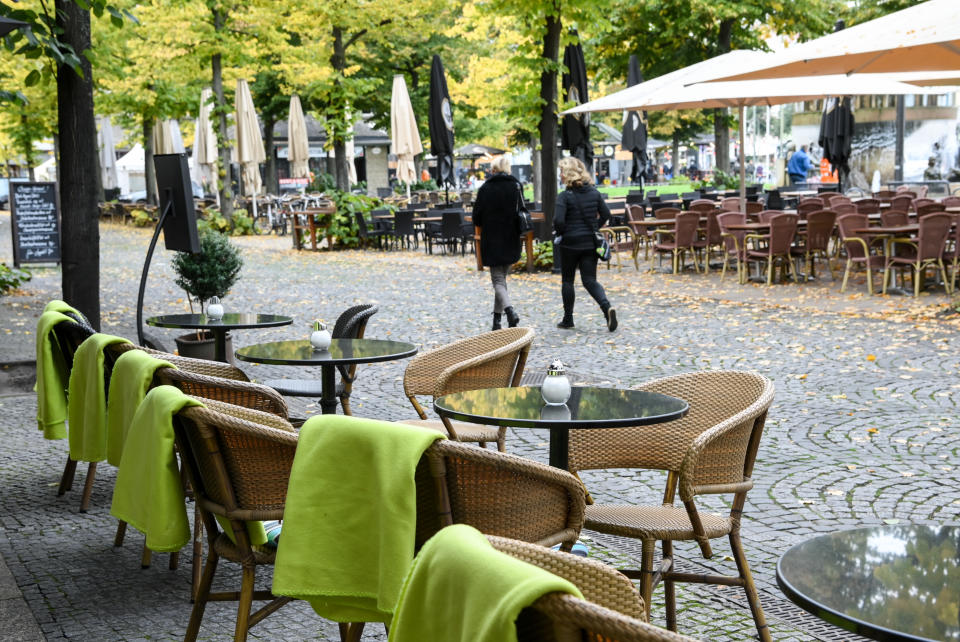German economic recovery to lose steam as pandemic continues to dominate

Germany’s leading economic institutes on Wednesday published their autumn report, which paints a more pessimistic forecast for the recovery of Europe’s largest economy than experts had predicted in their previous spring report.
The research institutes have revised their GDP forecasts downwards by a percentage point for both 2020 and 2021.
They now expect gross domestic product (GDP) to decline by 5.4% this year from the -4.2% they had forecast in Spring. For 2021, they expect growth of 4.7%, revised down from 5.8%. In 2022, economic output should increase by 2.7 %, they said.
“A good part of the slump from the spring has already been made up, but the remaining catching-up process represents the more arduous journey back to normal,” said Stefan Kooths, economic director of IfW Kiel, in a statement.
READ MORE: German government defends curfews and travel bans amid outcry from businesses
Germany, like most other European countries, is suffering from a second wave of infections, with daily tallies rising to numbers not seen since April.
Chancellor Angela Merkel will meet with the leaders of Germany’s 16 states in Berlin on Wednesday in an attempt to reach some kind of clarity on the confusion over different curfews and domestic travel bans between states.
The report, which comes out twice a year, is developed jointly by the German Institute for Economic Research, the Ifo Institute in Munich, the Kiel Institute for the World Economy, the Halle Institute for Economic Research, and Leibniz Institute for Economic Research.
READ MORE: Banks in Germany told to brace for post-pandemic bankruptcies
Sectors that depend on social contact, like restaurants, tourism, the events industry, and the airline industry are dragging on recovery for the whole economy.
“This part of the German economy will suffer from the coronavirus pandemic for a long time and will become part of the recovery process only when measures to protect against infection are no longer required, which we do not expect until next summer,” said Kooths.
The economists also pointed to companies’ reluctance to invest right now as another reason for the slowdown, due to the fact that their equity has deteriorated during the coronavirus crisis.
READ MORE: Brexit, coronavirus, and US election depress German investor morale
The German economy is not expected to return to pre-crisis output levels until the end of 2021 and won’t hit normal capacity until the end of 2022.
The pandemic’s effect on production is still very uncertain, according to Kooths, as it is difficult to predict what long-term damage the crisis will cause in terms of both political and economic reactions.
WATCH: UK unemployment hits 1.5 million

 Yahoo Sport
Yahoo Sport 





































